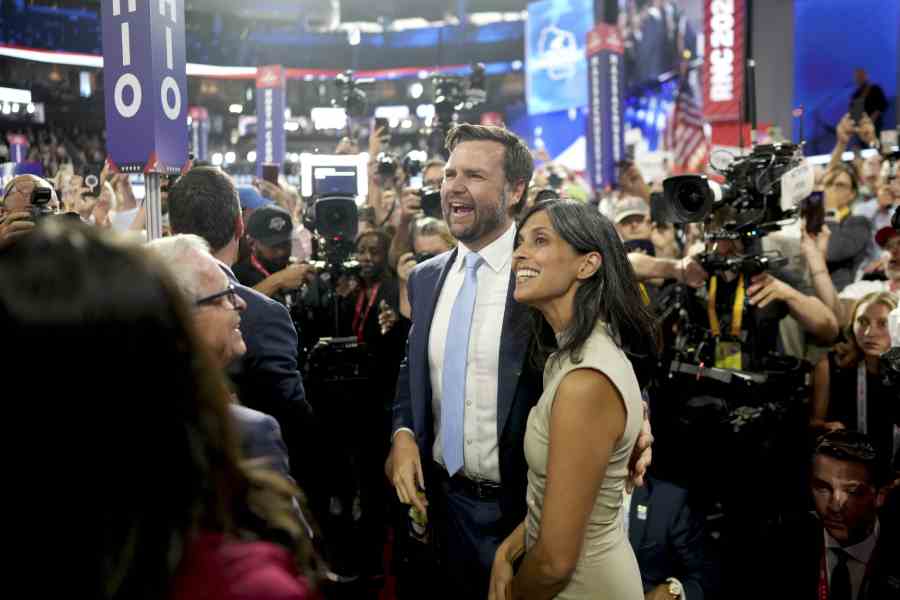If you were to build a member of the American elite from scratch, she might look something like Usha Vance.
The wife of Sen. JD Vance of Ohio, Donald Trump’s newly announced running mate, certainly has the credentials. A corporate litigator at a prestigious San Francisco law firm, Usha Vance has clerked for Supreme Court Chief Justice John Roberts and Justice Brett Kavanaugh when he was an appeals court judge, and earned degrees from Yale and Cambridge.
It’s a conspicuous resume for a woman whose husband gave a speech in 2021 titled “The Universities are the Enemy,” and rarely missed a chance to bash the establishment as he campaigned for the Senate in 2022, as The New York Times previously reported.
But Usha Vance is something of a political cipher.
The daughter of Indian immigrants, Usha Chilukuri grew up in a San Diego suburb. Friends from her childhood and adolescence described her as a “leader” and a “bookworm.” Brainy, ambitious and pragmatic, she moved from an extracurricular-studded four years at Yale to a Gates Fellowship at Cambridge, where she moved in mostly liberal and left-wing circles. As of 2014, she was a registered Democrat.
She and Vance met at Yale Law School, and the pair were married in Kentucky in 2014, and blessed by a Hindu pundit in a separate ceremony.
Usha Vance has played a quiet but significant role in her husband’s rise. At Yale, she helped Vance organize his ideas about social decline in rural white America, which formed the basis of his breakout memoir, “Hillbilly Elegy.” (In 2020, the book was adapted into a film directed by Ron Howard.)
And she made rare but well-choreographed appearances with Vance as he sought the Ohio Senate seat — including a Newsmax interview in which she seemed to contradict claims that her husband had taken on a populist message in order to succeed politically.
In an interview with “Fox & Friends” last month, Usha Vance — who mostly stays out of the spotlight — sounded a note of ambivalence about the prospect of her husband running for the second highest office in the country.
“I’m not raring to change anything about our lives right now, but I believe in JD, and I really love him, and so we’ll just sort of see what happens with our life,” she said.
The pair have three children.
Usha Vance’s career has put her in an awkward contrast with her husband’s political persona.
From 2015 until the day that Vance became the Republican vice-presidential nominee, Usha Vance worked as an associate and then as a corporate litigator at Munger, Tolles, and Olson, a law firm with offices in Los Angeles, San Francisco and Washington that describes its corporate culture as “radically progressive.”
A 2019 article in The American Lawyer placed its diverse hiring practices in the “cool, woke category.” (The San Francisco news site SFGate reported earlier on Usha Vance’s resignation from the firm.) As Politico reported last year, JD Vance delayed the confirmation of State Department roles by sending nominees a questionnaire to determine whether they were too “woke.”
Before becoming Trump’s vice-presidential pick, Vance once identified himself as “a Never Trump guy” and said he “never liked him.” But Vance went on to embrace Trump and accepted the former president’s endorsement in the Republican primary for the open U.S. Senate seat in Ohio that he won.
The New York Times Services










